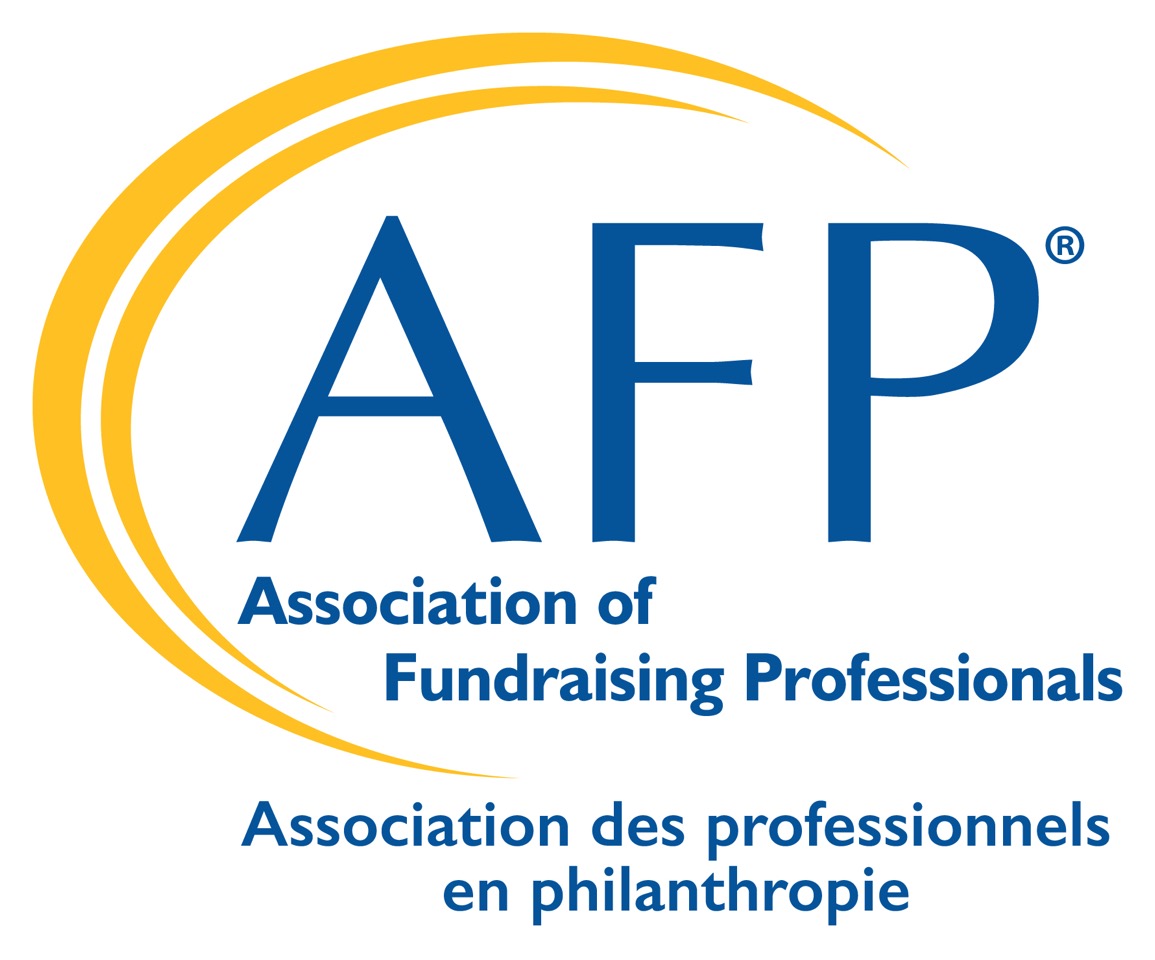2020 Compensation and Benefits Report: Fundraisers See Income Rise, Average Salary Decline in 2019 (Canada Data)

FRANÇAIS
Most Fundraisers Satisfied with Current Job, But Have Concerns with Time Dedicated to Fundraising, Board Engagement
(Ottawa, Ont.) Average fundraising salaries decreased by 5% in Canada in 2019, even as 70% of fundraisers saw increases in income and most remain satisfied with many aspects of their job, according to the Association of Fundraising Professionals’ 2020 AFP Compensation and Benefits Report.
Canada Infographic | Members: Download Report
The report, based on responses from almost 650 AFP members across Canada, asks questions about each respondent’s overall organizational profile, position description, salary, benefits—including health/medical, retirement and general perquisites or “perks”—and general outlook on the organization’s fundraising and workplace culture.
The mean (average) salary for all respondents in 2019 was $86,876, a decrease of -5.4% from the 2018 average of $91,547. The median salary—the most middle salary—was $80,000 in 2019, exactly the same as it was in 2018.
Higher salaries can often skew the results, and after removing the top 5% of salaries, the numbers were more mixed: a -2.9% decrease in average salary, while the median salary in 2019 ($78,000) is the same as it was in 2018.
The median salary of $80,000 in 2019 also compares favourably with the Canadian median household income of $76,211.
The top 25% of respondent fundraisers earned more than $103,875 (the 75th%ile), while the bottom 25% earned $61,000 or less.
“After two years of strong increases in salaries—16% in 2018 and 7% in 2019—we saw fundraising salaries drop across Canada,” said Mike Geiger, MBA, CPA, president and CEO of AFP. “Whether that’s simply a correction from the growth of the past couple of years, it’s hard to say, but I am still pleased that 70% of respondents saw their incomes rise last year. In addition, it’s great to see the median salary for fundraisers exceed the median household income by almost $5,000. For me, that figure shows young people and others entering the profession that you can earn an above-median income while having a fulfilling and satisfying career that helps to change the world. That’s a message we’ll be focusing on more in the future.”
Forty-four percent of respondents saw their income rise 1-3% in 2019, while 26% reported compensation that was 4% or more above what they earned in 2018. In addition, 24% saw no change in salary, and 6% saw their compensation drop.
About 30% of participants agreed that their organizations “explicitly state that achieving determined performance goals will be a factor in determining a pay raise.” This is a decline, though not statistically significant, from prior years when the proportion reporting performance-linked compensation was 33%.
The average salary of male fundraisers in 2019 was $99,489, while female fundraisers were paid an average of $83,963, or 15.6% less. Previous AFP research has found that 10% of the gap between men’s and women’s pay is attributed to gender. Other factors that were also tied to pay gaps were years of experience in the field and the size of the institution in which the fundraiser worked.
“It’s disappointing to see this disparity in wages between men and women in the fundraising profession continue,” said Paula Attfield, chair of AFP Canada. “There is a further disparity when we layer in intersectionality—women of colour for example, make even less than their counterparts.”
Twenty-two percent of study participants identified a race or ethnic heritage that was either multiracial or something other than white/Caucasian only. The salary difference reported was 2.5% more for those reporting as white/Caucasian ($86,389) as compared to those reporting of colour ($84,295). This finding is consistent with data from last year’s report where the difference between salaries was statistically negligible.
“AFP is working to address the pay inequity with measures such as salary band disclosure within the charitable sector,” continued Attfield. “To do their jobs effectively—namely raising money to fulfil the mission of the nonprofits they work for—fundraisers need to be fairly and equitably compensated for the work they do. We want to see the upward trends in salaries continue.”
Fundraiser Characteristics
The largest share of survey participants was chief development officers (26%), followed by fundraising officers (24%, typically related to major or planned gifts) and fundraising program managers (17%, generally related to the annual fund). Forty percent of respondents did not supervise or manage any other staff member, while nearly one-third (31%) manage three or more colleagues.
The average participant has worked for 3.7 employers as a fundraiser. Study participants averaged 4.9 years at their current employer and 6.1 years is the average for the longest time at any employer.
Thirty-one percent of all Canadian participants possess their Certified Fund Raising Executive (CFRE) certification. Those who hold the CFRE found their compensation increased with years of experience at higher rates than those without the certification.
Workplace Satisfaction and Challenges
The survey asked several questions about how satisfied fundraisers were various aspects of their organization and its fundraising. In general, two-thirds or more of respondents were satisfied with their organizations’ fundraising results and investments. For example, 84% were satisfied with the skills and knowledge of their fundraising staff; 77% were satisfied with their president’s or executive director’s focus on fundraising; and 72% were satisfied with their organization’s fundraising technology.
Two areas scored lowest for satisfaction: staff having sufficient time dedicated to fundraising, with 60% indicating satisfaction, and board members’ engagement with fundraising, with just over one-third (31%) expressing satisfaction.
“Nonprofits serve a critical role in society, especially now during COVID,” said Attfield. “They collectively fill the gaps that the government simply isn’t equipped to fill, from the funding the arts, to providing for those who are ill, to helping families facing food insecurity, to name just a few examples. Without fundraisers to help connect donors to these causes, none of this would be possible. It’s so important for nonprofits to recognize the value of fundraisers and to provide the space for them to do their jobs well.”
Over the last five Compensation and Benefits Reports, about two-thirds (64%) of participants said they have thought about leaving their jobs in the last year. Reasons included desire for professional advancement; concerns about organizational climate and operations; and desires to match personal and employment goals and values.
In 2019, 62% indicate they had thought about leaving their jobs, higher than the 54% in 2018. Of those who reported thinking about leaving and looking for a job elsewhere, 73% said it was to earn a higher salary, 65% sought greater opportunities for career advancement, and 57% were frustrated by their work environment.
“It’s clear that fundraisers are under a lot of pressure right now to generate more and more income to provide critically needed programs in the community,” said Geiger. “At the same time, the demand for qualified fundraising professionals has never been higher, and we’re seeing an influx of new people into the profession. I think those factors contribute to turnover, although it’s important to point out that statistics like average amount of time at an employer have continued to slowly increase over the years. So, we need to understand the full context of these numbers—there’s turnover obviously happening, but I don’t think it’s flooding the sector either. Charities need to use resources like the AFP Compensation and Benefits Report to understand how to retain their fundraising staff.”
About the Survey
A total of 642 AFP members in Canada submitted usable responses by the time the survey closed, a response rate of 17.7%. Respondents vary from year to year.
The 2020 AFP Compensation and Benefits Report is available free to AFP members on the AFP website at https://afpglobal.org/salarysurvey.
Non-members may purchase the report for $99 here: https://www.pathlms.com/afp/courses/26051





